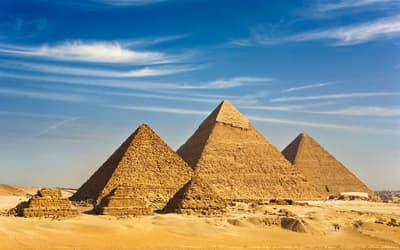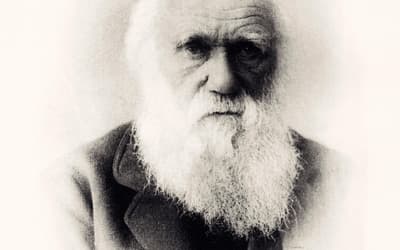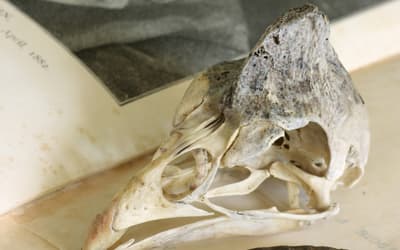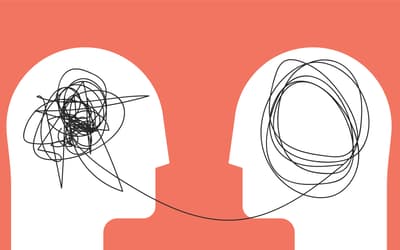Professional, peer-reviewed papers about the nature, origin, consequences, forgiveness, and end of sin from a biblical perspective.

The Place of the Exodus in Egyptian History: Comments 1
A. John M. Osgood • March 2, 2022
The Egyptian king lists have been arranged sequentially as was common in the ancient world, but they often were listing parallel and with overlapping dynasties.

The Place of the Exodus in Egyptian History
Robert M. Porter • Feb. 16, 2022
Egyptian history will be explored, looking for potential shortenings, with a view to putting the Exodus at the end of the Old Kingdom, a time when Egypt collapsed.

Darwinism and the Tuskegee Syphilis Study
Dr. Jerry Bergman • Nov. 17, 2021
The history of the Tuskegee Syphilis Study is a salient example of the negative fruits of Darwinian racism.

Friedrich Engels Introduced Darwin to Karl Marx and Changed the World
Dr. Jerry Bergman • Nov. 10, 2021
Friedrich Engels was in some ways as important as Marx in helping to establish the revolution called Marxism (Communism) that has changed the world.

Effects of the Fall on the Physical Creation: A Biblical Analysis
Zachary Klein , et. al. • Aug. 12, 2020
To interpret the natural world through the lens of Scripture, one must have a correct understanding of the Fall and its effects on the physical creation.

Refuting Dubious Claims Regarding Natural Selection
Dr. Jason Lisle • Dec. 5, 2018
Randy Guliuzza has made some controversial claims regarding the cause and nature of adaptation of organisms to their environment. We examine his claims.

The Most High and the Axiology of Genesis 1: Could God Create Everything Good from the Beginning?
Callie Joubert • Nov. 14, 2018
It is not unintelligible that God created everything good from the beginning; it is only unintelligible to the person who makes the claim.

A Christian Response to the Crisis in Psychiatry
Callie Joubert • May 28, 2014
Psychiatry is facing a crisis, and it is well known that psychiatry has taken over many concepts from the Bible and secularized them.

The Second Law of Thermodynamics and the Curse
Dr. Danny R. Faulkner • Nov. 13, 2013
Many recent creationists believe that the second law of thermodynamics came into being as a result of the Fall or the curse. I argue that this is not supported by Scripture nor science.

A Further Examination of the Gospel in the Stars
Dr. Danny R. Faulkner • Feb. 6, 2013
While well intended, the gospel in the stars is fraught with problems, and Christians are discouraged from using it.

Adam, Free Choice, and the Cause of Sin: A Creationist Response to a Christian Evolutionist
Callie Joubert • Oct. 26, 2011
This paper will show that Christian professor Daniel Brannan’s arguments are based on faulty premises regarding Adam’s constitutional nature, the nature of Adam’s perfection and Adam’s free choice.

An Examination of Augustine’s Commentaries on Genesis One and Their Implications on a Modern Theological Controversy
Dr. Tim Chaffey • July 13, 2011
Few individuals in church history are as popular as Augustine of Hippo. Old-earthers claim him as support for figurative interpretations of Genesis 1. But what did Augustine really say?

Hebrew Metaphysic
Doug Kennard • Dec. 31, 2008
Metaphysical development in Hebrew biblical texts is especially elucidated through a series of word studies with a shifting emphasis that each cross-pollinates the others.
Sin in Answers Research Journal
The Bible’s teaching on sin is a crucial topic. What is sin? When was the first sin? What were the consequences of that sin? How does sin affect our thinking and behavior? Today, most people don’t like to think about sin or admit that they are sinners. But denying or ignoring reality only leads to problems.
Some of the key passages related to the nature, origin, and consequences of sin are found in the Bible in Genesis 2–6; Isaiah 53:6; Mark 7:20–23; Romans 1:18–32, 3:9–23, 5:12–14; and Ephesians 2:1–3. In these passages, we learn that Adam and Eve, the first two humans, sinned by rebelling against God’s clear command. As a result, they immediately died spiritually (i.e., their relationship with God was broken) and they began to die physically. All their descendants have been born with a sin nature and a naturally rebellious heart, are separated from God, and are under the sentence of death. Sin distorts our thinking and causes us to suppress and deny truth, which affects our relationships, our decisions, our values, and our thinking about the world, including our scientific study of the world.
The Bible also says that man cannot solve his problem of sin, but that through God’s chosen people (Israel) God provided one Savior (Messiah), Jesus Christ, so that anyone who acknowledges and turns from his sin (repents) and trusts in the substitutionary death and bodily resurrection of Jesus Christ will be forgiven and restored to a right relationship with God. Key scriptures teaching this include prophecies about the coming Messiah (e.g., Genesis 3:15; Isaiah 7:14, 9:1–7, 52:13–53:12) and declarations after the Messiah Jesus was conceived in the womb of the virgin Mary (e.g., Matthew 1:18–25; Luke 2:1–12, 24:44–47; John 3:16–21; Acts 4:12, 16:30-31; Romans 3:21–26, 5:1, 6:23, 10:9–11; I Corinthians 15:3–8). One day Jesus Christ will return and put an end to sin and death (e.g., Romans 8:18–25; 1 Corinthians 15:51–57; 2 Peter 3:10–13; Revelation 21:3–5, 22:3).
The aim of these research papers in Answers Research Journal (ARJ) is to deeply consider the nature of sin, its consequences, what God has done about it and will do about it, how has sin affected the physical creation, and how does sin impact scientific research and theories. Our journal considers these issues in the light of biblical teaching, historical developments, current circumstances, and scientific proclamations.
